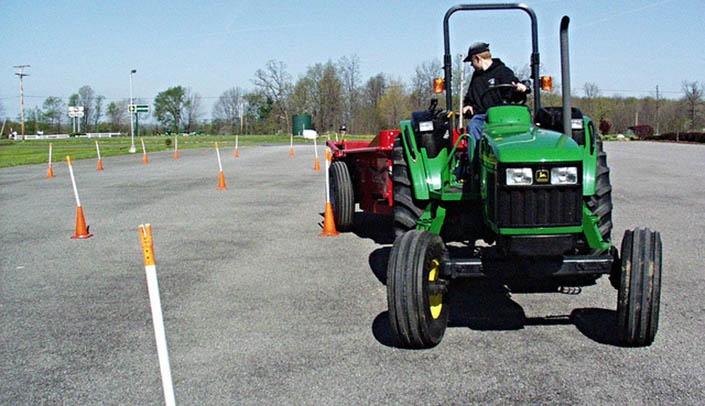UNMC’s Central States Center for Agricultural Safety and Health (CS-CASH) in the College of Public Health received a one-year grant to build upon and strengthen the Safety in Agriculture for Youth (SAY) program that aims to prevent fatalities and serious injuries associated with farming.
Aaron Yoder, assistant professor, environmental, agriculture and occupational health and principal investigator, said the grant has been approved for $300,000 over three years if funding is available.
It was one of three $100,000 grants awarded to two other universities by the U.S. Department of Agriculture’s (USDA) National Institute of Food and Agriculture (NIFA) to develop a coordinated approach to providing agricultural safety and health education for rural youth.
“The project is funded by the same type of grant I used to develop the tractor safety program for Nebraska’s youth,” Yoder said. “But for this grant we will develop and expand a clearinghouse of materials to be used by educators across the U.S. that will help keep the next generation of farmers safe.”
Protecting youth working in agriculture is the central focus of SAY, a NIFA-funded program that began in 2014. This multi-institution, multi-state project enhances accessibility to quality youth farm safety curricula. More than 18,000 youth from 46 states, most under 18 years of age, have enrolled in farm safety online training through SAY, and close to 9,000 youth have completed the training to date.
Agriculture is one of the most hazardous industries in the U.S. affecting a wide demographic. The most common cause of death in agricultural accidents in Nebraska is overturn from tractors and all-terrain-vehicles (ATVs). Tractor and ATV overturn prevention is part of the SAY safety program.
Federal law prohibits youths under age 16 from working on a farm for anyone other than their parents. Youth who receive course certification through SAY are exempt and will be allowed to drive a tractor and do field work with mechanized equipment on another person’s farm.
